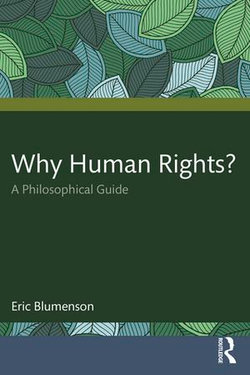Why Human Rights?: A Philosophical Guide explores the three fundamental philosophical claims underlying the moral idea of human rights:
(1) Universal justice, and objections to it on relativist and diversity grounds. This question is integral to many human rights claims regarding, for example, gender discrimination, caning punishments, and child marriages in traditional societies, all of which assume justice can be global, not only local.
(2) Human equality, and hierarchical moral status claims like caste. Moral status claims are also central to current controversies over abortion, assisted suicide, and animal rights, among others.
(3) Individual rights, and collectivist counterclaims from utilitarians and communitarians -- a debate reflected in the post 9-11 argument over American reliance on torture-enhanced interrogation.
Because these issues lie at the heart of moral and political philosophy, readers will also obtain a broad appreciation of these disciplines and its leading theorists, including Mill, Kant, Rawls, Sandel, Nozick, Rorty, and many others. Written in concise, jargon-free language, this book presents a high-relief map of the philosophical foundations of the human rights idea at a time of mushrooming illiberal challenges to it.



Share This eBook: